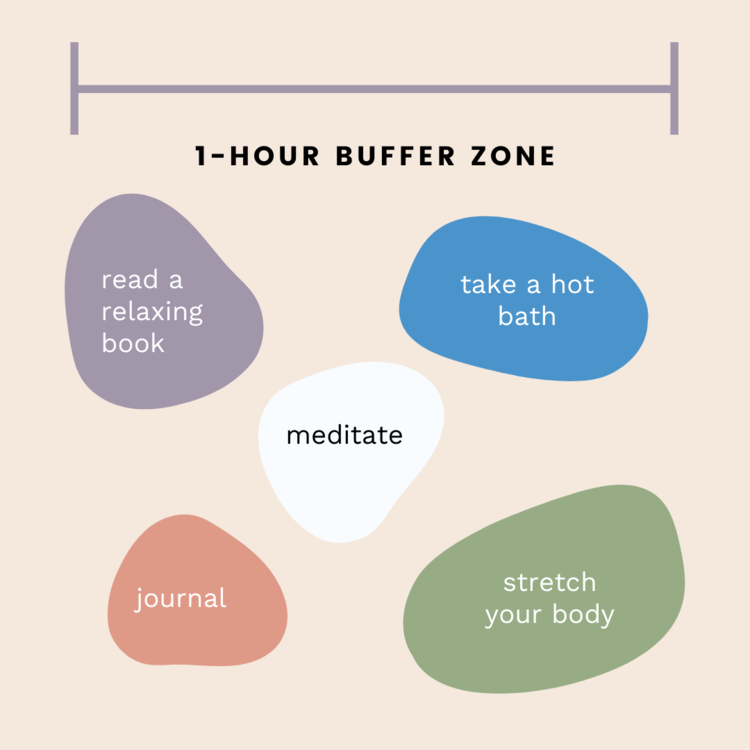When you’re juggling a career, relationships, and all the details of everyday life, it can be tempting to push as hard as you can to the point of exhaustion, fall immediately asleep, rinse, and repeat. But especially during times of stress, this pattern can eventually lead to difficulty falling asleep and a vicious cycle of insomnia and daytime ineffectiveness.
Humans are not machines, so we don’t have an on/off switch. Sleep itself is an important and complex process distinct from mere unconsciousness. To achieve high-quality sleep, your brain needs to transition smoothly from the active “go, go, go” state of day to a more gentle “rest and rejuvenate” state of night. Without a proper transition, the sleep you manage to get can feel light and unfulfilling.
To cue your brain that it’s okay to rest, create a buffer zone of 30 to 60 minutes before bed. What you choose to do during this time is personal to you, but should be enjoyable and relaxing. Here are some of our favorite ideas:
-
Read a nourishing book
-
Listen to music or a podcast
-
Do some yoga or gentle stretching (this can be particularly helpful if you experience aches and pains during sleep)
-
Take a hot bath or shower
-
Dedicate time to a meditation practice
-
Look in on your houseplants

On the other hand, here are some things not to do in the buffer zone:
-
Don’t respond to one more email. In fact, try not to check email during this time.
-
Don’t make tomorrow’s to-do list. You can do this before the buffer zone and know that you’ll take care of it tomorrow.
So do you notice a difference in your sleep when you keep a buffer zone versus not? What are your favorite wind-down activities? Let us know, we would love to hear from you!
